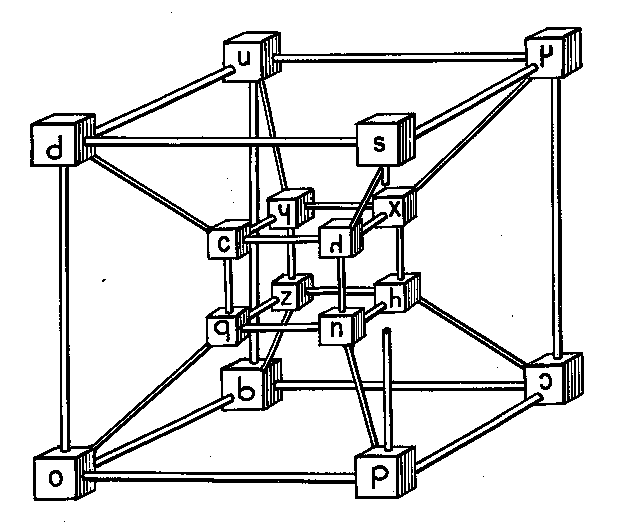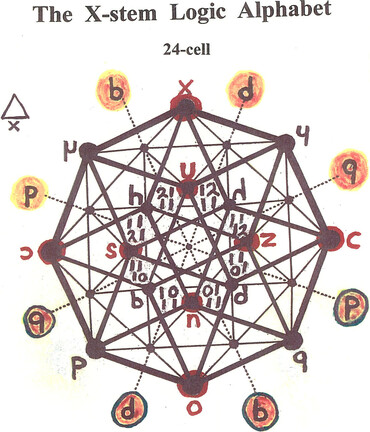
The whole thing was funded by a big grant from Target, and you can definitely tell because there's a bunch of shit in this project that smells strongly of American non-profit grift. Take this, for example:
https://www.amacad.org/news/pbs-project-partnership-announcement
By the time a big non-profit is paying a "big name" (big in the world of American 21st C. poetry, I guess) to do something aas useless as a "crowdsourced poem," I want you to think about a nature documentary where hundreds of hyenas feed on a single kill. Feeding frenzy
I put quotes around "national" because most everything was in NYC, naturally.
The thing that really grinds my gears about all of this is that by 2020 we all knew the problems with the Web 2.0 project that this represented:
- all of the standard critiques of reality TV and "authenticity" apply
- all the standard critiques of platforms and epistemic bubbles apply
And lo and behold, PBS paid this production company a gigaton of cash to make a bland, inoffensive, and thesis-driven piece of shit
The basic concept was that PBS would pay a production company to host a website where people would "crowdsource" template-based videos about what it means to be an American in 2020. As if people don't have other, superior platforms to share their perspectives without constraints. Then PBS paid this production company to edit together some of the garbage into some thematic episodes. And also, because this is supposed to be interactive, they half-assed some "national" events and murals.
Future generations will not be able to make sense of the way we have all memory-holed 2020. I have like three particular grievances that will never get a proper airing, and one of the most unique ones is about PBS American Portrait. It might be the thing that totally distanced me from public media in the US.
What is PBS American Portrait? It is the most 2011 project you've ever heard of -- and yet it wasn't created 2020.
@tootkoTootarov Thank you very much. I'm ashamed to say I'm stymied by the meaning of "finding mu by feathering." I apologize for the loss of mystique I have just incurred.
My sense is that you're talking about finding traction ("mu," as in friction) through lil' subtleties in my gesture ("feathering")
moving through water involves lots of counter-intuitive dynamics. Like at some level I figure that I'm gliding inside a buoyant zone just below the water, and my "propulsion" is made by reaching out and grabbing water in front of me and then shoving it below and behind me. But there's lots of little complications from this that I don't yet have a vocabulary to appreciate.
Trying to get into swimming. As a kid my parents didn't have the means so I've always struggled with it. I've had 2 weeks of pretty consistent practice. Trying to get better at the front crawl for now because that's the stroke that seems most rewarding to me.
I can usually approach exercises with some pretty intuitive attention to my form and a few simple rules-of-thumb ("move the weight on the shortest path," "use the shortest lever arm") but swimming is weird because ...
You need to be security-through-obscurity-maxxing. You need to be imperceptible in the dark forest. Your actions need to be chaotic and self-ironizing. You need to turn your sensuous characteristics and behaviors into an interpretive trap for those who would seek to pattern your moves. You need to be planting false leads and heuristic traps. Your propinquities need to be delusional and holographic. James Jesus Angleton-core. A knife in the dark. A wilderness of mirrors. You need to be anti-telic
@enkiv2 "As Heidegger puts it, the potential for seeing is what makes the eye, not vice versa. After all, an eyeball created by random mutation would just sit around as useless dead weight if the rest of the organism were not already open to outside influence by light." ~ Graham Harman, /Heidegger Explained/ under "Tools and Organs"
Signed, someone who has sincerely designed multiple typefaces for an alternate alphabet for English
By redefining the goal of the Abraham H Parnassus Fund from "educate people in this particular place" to "hashtag resisting whatever Ingroup has targeted as Oppression," the Fund has given itself a vertiginous expansion of freedom. This, in turn, requires that the Fund must vastly expand its operations to include voluminous quarterly reviews in which all directors must regularly write their own objectives and define their own metrics -- or failing that, the Fund has to hire Metrics Consultants.
Anyway human flourishing is vastly more important than plant life and I'm gobsmacked this has become an operational problem in the dense urban cores of the developed world.
Imagine instead if the Abraham H Parnassus Fund chose to use its institutional resources, and by extension its site, for uhhh actually doing something that developed human capacities. Then they would have a right to occupy the town square, for purging abusive actors (out of protection for good-faith participants), and they wouldn't actively harm to Polis around them.
And this really rubs me the wrong way in dense urban centers where these shitty community gardens represent a theft from the common value of density created by the Polis.
These powerful institutions usual have monopolize sites in dense urban spaces, meaning that they have a lot of direct control over the value of the commons. And what they choose to do with their sites by creating shitty half-ass gardens is they either cede these sites to abuse or turn them into walled gardens. Both are insults.
Humanist interested in the consequences of the machine on intellectual history.









